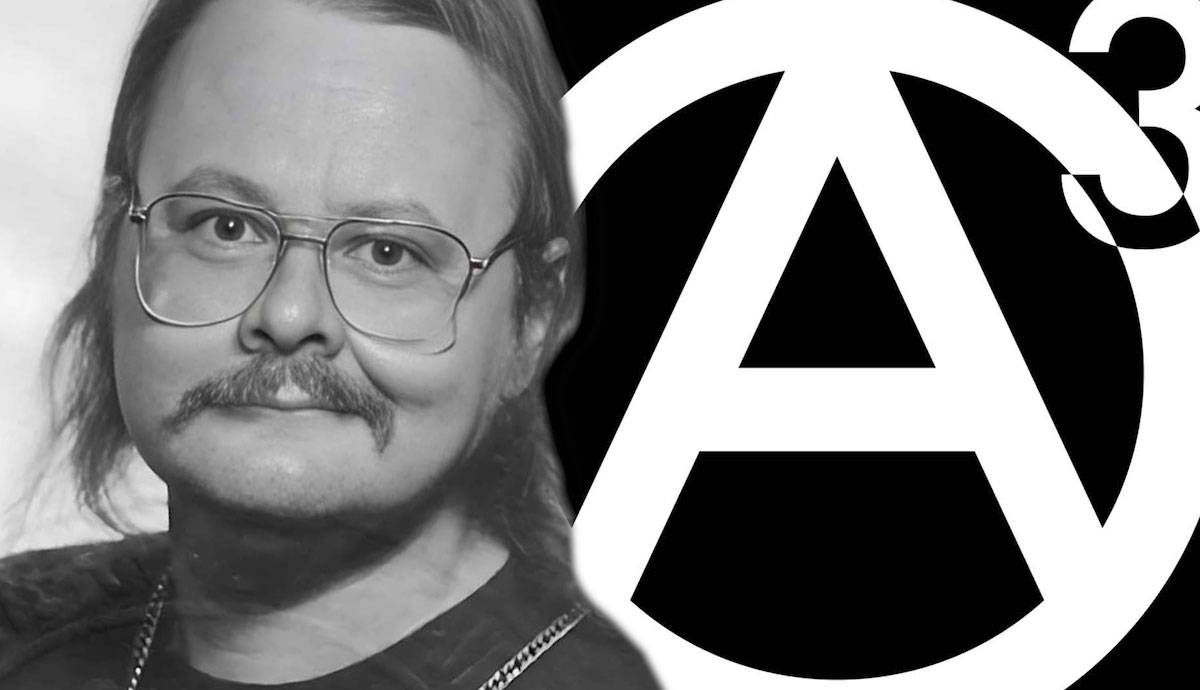
First proposed by American libertarian philosopher Samuel Edward Konkin III, sometimes known as SEK3, Agorism is a libertarian social philosophy that advocates the elimination of coercion in society with the goal of ensuring that all relationships between people are voluntary exchanges. This article will explore agorists’ main beliefs, paying particular attention to Samuel Edward Konkin III’s New Libertarian Manifesto (1980) and An Agorist Primer (2008).
1. What are The Origins of Agorism?

Agorism takes its name from the Greek agora (ἀγορά), the name given to the open square and market at the center of the ancient Greek polis, or city-states, which functioned as the centers of social, political, and economic life. The Greek agora, and the relations between citizens it enabled, serves as an inspiration for agorists. In the words of Samuel Edward Konkin III:
‘The goal of agorism is the agora. The society of the open marketplace as near to untainted by theft, assault, and fraud as can be humanly attained is as close to a free society as can be achieved. And a free society is the only one in which each and every one of us can satisfy his or her subjective values without crushing others’ values by violence and coercion.’
(Konkin, 2008, p. 73)
Agorism, however, isn’t simply a desire for a return to ancient ways of relating. Agorism as a twentieth-century social philosophy was heavily influenced by Austrian economics, particularly the work of Ludwig Von Misses and Fredrich Hayek. In a nutshell, Austrian economists argue, contra Marx’s labor theory of value, that the value of a good doesn’t depend on its cost of production. Instead, it depends on the utility the person can derive from it. In this sense, value is subjective, and it lies in its ability to satisfy human desires.

Get the latest articles delivered to your inbox
Sign up to our Free Weekly Newsletter
Agorists see this view of value as providing an argument against the state. When the government interferes in trade, for example, by taxing people, it substitutes the individual person’s view of what is best for them for another view, the state view, to which they may not subscribe to. As a consequence of these forced trades, individuals end up with a package of goods they value less than the package of goods they would have had in the absence of coercion. The conclusion agorists draw from this is that coercion, and therefore the government, is a universal disutility that we ought to seek to reduce.
2. The Concepts of Counter-economics and Non-Violent Revolution

Like all other anarchists, agorists advocate the abolition of the state, and the refusal to use the institutions of the state (e.g. voting, running for office) as a means of bringing about social change. Agorists “are not content to wait a slow, haphazard drift toward a free society; many are being oppressed, plundered, and murdered by the state.”
However, unlike anarchists such as Mikhail Bakunin and Peter Kropotkin, Agorists advocate non-violent means of undermining the state, principally through civil disobedience and counter-economics. The counter-economy, as agorists understand it, is composed of all of the non-aggressive forms of human activity that are not state-sanctioned. In the words of SEK3 in his pamphlet Counter-Economics: What it is, how it works:
“The counter-economy includes the free market, the black market, the underground economy, all acts of civil and social disobedience, all acts of forbidden association (sexual, racial, cross-religious), and anything else the State, at any place or time, chooses to prohibit, control, regulate, tax, or tariff.”
Through engaging in, and promoting, these practices, Agorists aim to undermine the state by depriving it of taxable resources and the means of controlling interactions between people. Agorists thus see the actions of the tax evader, the smuggler, the businessman ignoring regulations, drug users, and those who provide sanctuary and employ illegal immigrants, as laudable as they all subtly undermine the authority of the state.

Konkin argues that most people already engage in some of these counter-economic activities. For instance, most people engage in some form of “off the books payments for services” or ”unreported trade with relatives” (Konkin, 1980, p. 45). The challenge for Agorists is to expand the realm of counter-economic activity to deprive the state of resources. In the words of Samuel Edward Konkin III: “Should the taxpayers completely cut off the blood supply, the vampire statue would helplessly perish, its unpaid police and army deserting almost immediately, defanging the monster. If everyone abandoned ‘legal tender’ for gold and goods in contracts and other exchanges it is doubtful that even taxation could sustain the modern state.” (Konkin, 1980, p. 46)
In place of the current state-regulated capitalist system, agorists envision a world of non-hierarchical, free relationships between people. Like Proudhon before him, Samuel Edward Konkin III sees an anarchist economic system as being primarily composed of small independent traders and artisans:
“In an agorist society, division of labour and self-respect of each worker-capitalist-entrepeneur will probably eliminate the traditional business organisation – especially the corporate hierarchy, an imitation of the State and not the Market. Most companies will be associations of independent contractors, consultants, and other companies. Many may be just one entrepreneur and all his services, computers, suppliers, and customers.”
(Konkin, 1980, p. 57)

The fact that agorists praise black market transactions and illegal economic activity does not mean that Agorists praise all forms of activity which are currently illegal. After all, there are good reasons why murder, extortion, and theft are illegal, principally because they involve the infliction of violence and/or are non-consensual. Agorists take no issue with these prohibitions and, in line with their pacifist beliefs, do not condone enrichment through violence or non-consensual relationships such as theft or fraud.
3. How Should an Agorist Society Function?

The basic tenet of agorist philosophy is that “initiatory violence or its threat (coercion) is wrong (immoral, evil, bad, supremely impractical, etc.) and is forbidden; nothing else is.” (Konkin, 1980, p. 17).
Agorists divide people into those who live by their own productive efforts and those who make a living through coercing others (i.e., statists). The state, according to Konkin, is “the mob of mobs, the gang of gangs, conspiracy of conspiracies. It has murdered more people in a few recent years than all the deaths in history before that time; it has stolen in a few recent years more than all the wealth produced in history to that time.” (Konkin, 1980, p. 16)
At this point, one may ask: if we abolish the state, how can we ensure that violence, fraud, and theft don’t flourish? Don’t we need a police force, backed by the state, to find criminals, apprehend them, and bring them to justice? Konkin argues we don’t. In an agorist society, disputes between people would be resolved by voluntary arbitration in which a third party examines the merits of the case and reaches a judgment that is binding on both parties of the dispute.
Konkin argues that we don’t need the state to enforce the judgment. Instead, this could be done through the free market. In order to enforce the judgment, Konkin argues people would employ private insurance/enforcement agencies which (for a fee) would seek to enforce the judgment against the recalcitrant parties.

Suppose B steals some property from A. A, not knowing who stole it, contacts his enforcement agency EA. EA compensates A for his loss and sets out to investigate who stole the property. Say they can’t find the culprit; in this case, EA absorbs the loss (paying for restitution from the income it receives in premiums). Given EA is forced to absorb the losses, EA has a strong incentive to get better at solving these sorts of crimes in the future.
On the other hand, say EA does identify the culprit, finding the stolen goods in B’s possession. If B admits the theft, the property can be returned to A, and B can be forced to pay for the costs of enforcement. But what if B claims the property isn’t stolen, but rightfully his? Here a dispute is likely to arise. If B is insured by an enforcement agency, B will call upon agency EB to protect him from intrusion from EA.
This is where arbitration between the parties comes in. Neither company, EA or EB, has incentives to engage in violence against the other, as (regardless of who wins) both would suffer losses. Instead, both have incentives to appoint an impartial arbitrator and bind themselves to the results of that arbitration. Say the arbitrator determines that B did in fact steal A’s property. In this case, B’s protection company EB, would step aside and allow EA to enforce against B, as they don’t gain anything from protecting wrongdoers. B, faced with professional enforcement and property recovery specialists, is unlikely to prevail, and the property would be returned to A.
References:
Konkin III, Samuel Edward. (1980) New Libertarian Manifesto. Kopubco, Huntington Beach.






